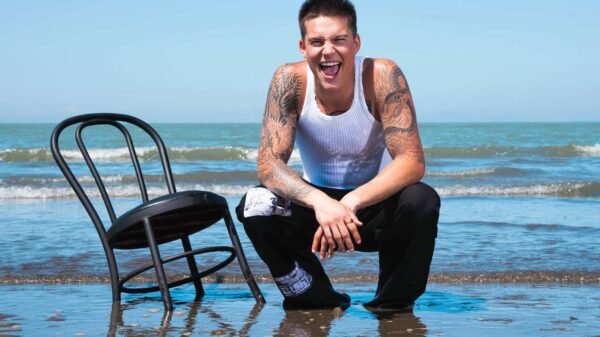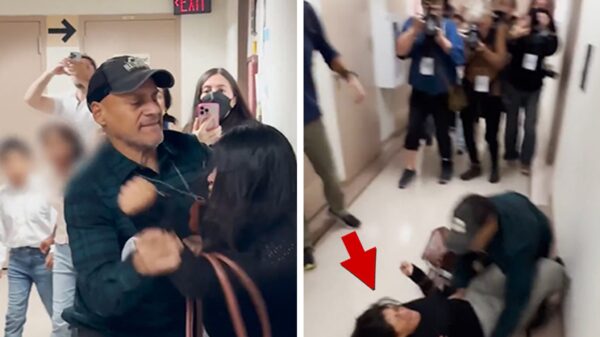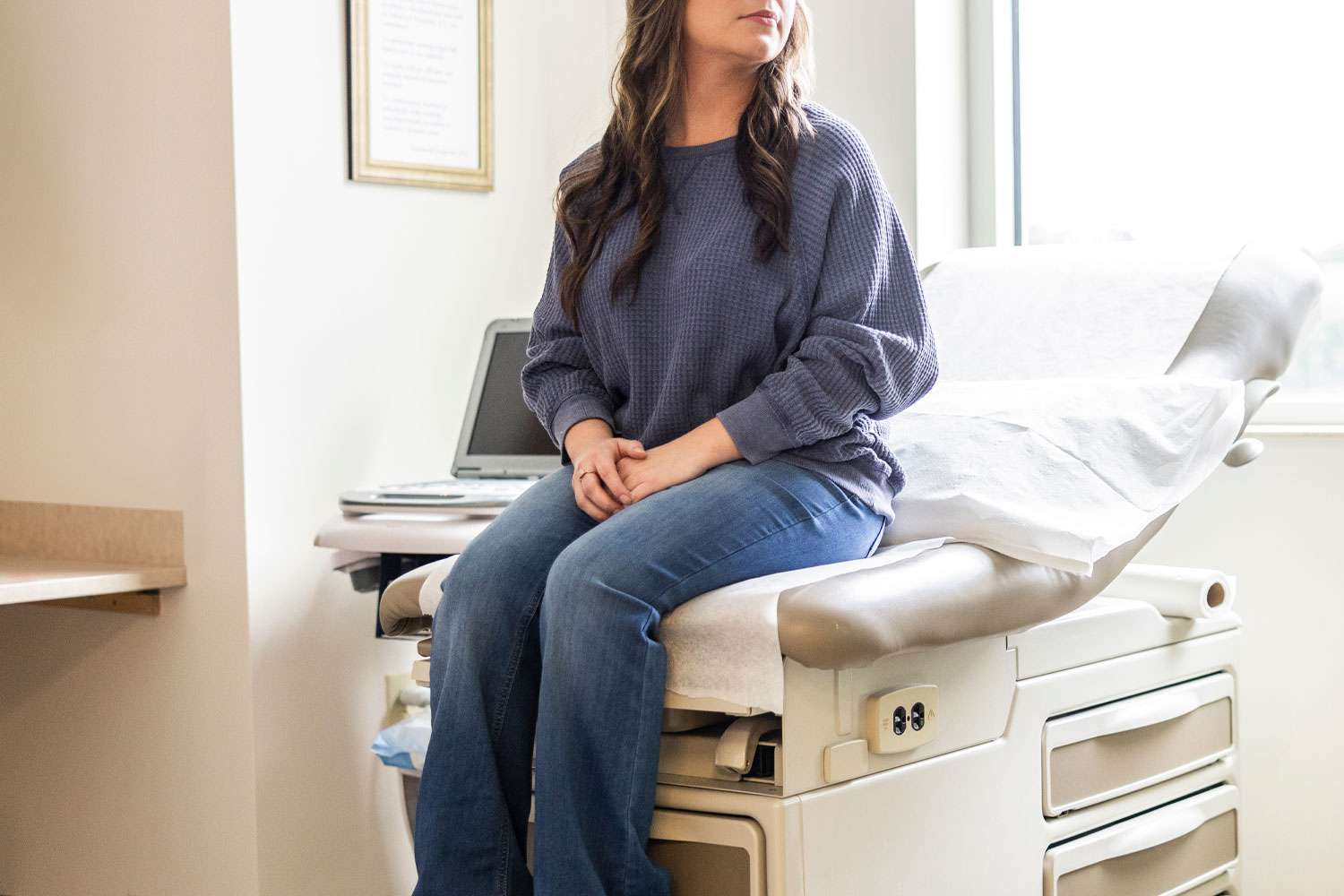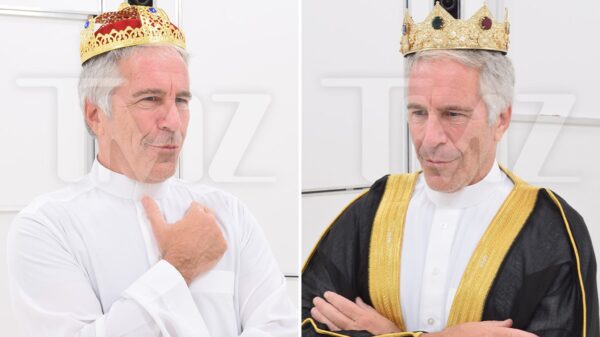NEED TO KNOW
- Erin Kelly, a 29-year-old single mom from Australia, has been diagnosed with a rare form of Alzheimer’s disease
- Kelly says she’s already experiencing symptoms after multiple members of her family, including her mother, died early from the disease
- Kelly doesn’t know when to tell her 8-year-old daughter Evie about her diagnosis
A young mother in Australia is speaking out about receiving a heartbreaking health diagnosis at age 29.
Erin Kelly, from Eagleby, Queensland, learned she had early-onset Alzheimer’s disease in June of this year, after tests confirmed in May 2024 that she’d inherited a rare genetic mutation called PSEN1 from her mother, Robyne, per 7News.
Kelly — who is a single mom to 8-year-old daughter, Evie — told the outlet of the diagnosis, “My [mom] died of Alzheimer’s when she was 50,” adding, “The disease took my grandfather at 45, and my aunt when she was the same age. I just didn’t think it would come for me so soon.”
Per the Mayo Clinic, “Young-onset Alzheimer’s disease is an uncommon form of dementia that affects people younger than age 65. The condition also is called early-onset Alzheimer’s disease.”
“Most people with Alzheimer’s are age 65 and older. About 1 in 9 people age 65 and older in the United States has Alzheimer’s disease. About 110 of every 100,000 adults between ages 30 and 64 have young-onset Alzheimer’s,” the site adds.
Kelly’s father had revealed she and her siblings had a 50/50 chance of getting Alzheimer’s disease in January 2020, per news.com.au.
“Originally I think I was in a little bit of denial, and I originally said I didn’t want to know,” she said, according to the outlet.
“I sort of stuck my head in the sand and just pretended it wasn’t happening for probably the first three years, until I decided that I needed to do something about it,” Kelly added.
Scans revealed the first signs of damage to Kelly’s neurons, which are cells in the brain that send messages all over the body, in June, 7News noted.
“I’ve started to notice small changes already,” Kelly told the outlet of already noticing symptoms. “Forgetting words and mixing words together.”
“I’ll be thinking of something, and I’ll just mush the words together,” she added. “It’s things I didn’t do previously.”
Kelly said of her daughter Evie, “We’re not exactly sure how or what to tell her yet. She’s still so young.”
“She will get some information, but we want to protect her for as long as we can,” she continued, per the outlet. “The goal is to see her finish school, get married. I want to make sure she’s an adult before I die.”
Kelly’s stepsister, Jessica Simpson, started a GoFundMe page to help raise money for treatment, claiming that Kelly had been “told she’s too young to qualify for clinical trials in Australia.”
“There is a treatment called Leqembi. It’s not a cure, but it could slow the progression and give Erin more time — to keep working, keep functioning, and most importantly, keep being Evie’s [mom] for as long as she can,” Simpson wrote on the page. “But this medication isn’t available through the public system [in Australia] and is incredibly expensive.”
Never miss a story — sign up for PEOPLE’s free daily newsletter to stay up-to-date on the best of what PEOPLE has to offer, from celebrity news to compelling human interest stories.
According to the Alzheimer’s Association, Lecanemab (Leqembi) “has received traditional approval from the U.S. Food and Drug Administration (FDA) to treat early Alzheimer’s disease, including people living with mild cognitive impairment (MCI) or mild dementia due to Alzheimer’s disease who have confirmation of elevated beta-amyloid in the brain.”
“Leqembi lowers beta-amyloid in the brain and reduces cognitive and functional decline in people living with early Alzheimer’s,” the association states.
Simpson said on the GoFundMe page of her stepsister’s diagnosis, “It’s rare. It’s terminal. And it’s already starting to affect her life.”
“Most people don’t associate Alzheimer’s with someone so young — someone still packing school lunches, doing bedtime stories, and showing up every day for her child. But this is Erin’s reality. And sadly, it’s progressing fast,” she added.
Simpson insisted, “Erin isn’t asking for a miracle — she knows there’s no cure in time for her. She’s simply asking for more time. More ordinary days. More little moments. More memories Evie can carry with her when Erin no longer can.”
The Mayo Clinic says it is rare for young-onset Alzheimer’s to be “caused by a specific error in a gene, called a genetic mutation,” which “can be passed from parent to child”: “Three different genes may have a mutation that causes young-onset Alzheimer’s disease. These genes are APP, PSEN1 or PSEN2.”
PSEN1 is the genetic mutation that Kelly inherited.
“A person who inherits at least one copy of a mutated gene will likely develop Alzheimer’s disease before age 65,” the Mayo Clinic adds.
“About 11% of people with young-onset Alzheimer’s carry a genetic mutation that causes disease. But among all people with Alzheimer’s disease, fewer than 1% carry one of these causal genes,” the site states.
PEOPLE has reached out to Simpson for an update on Kelly’s diagnosis.
Read the full article here

















